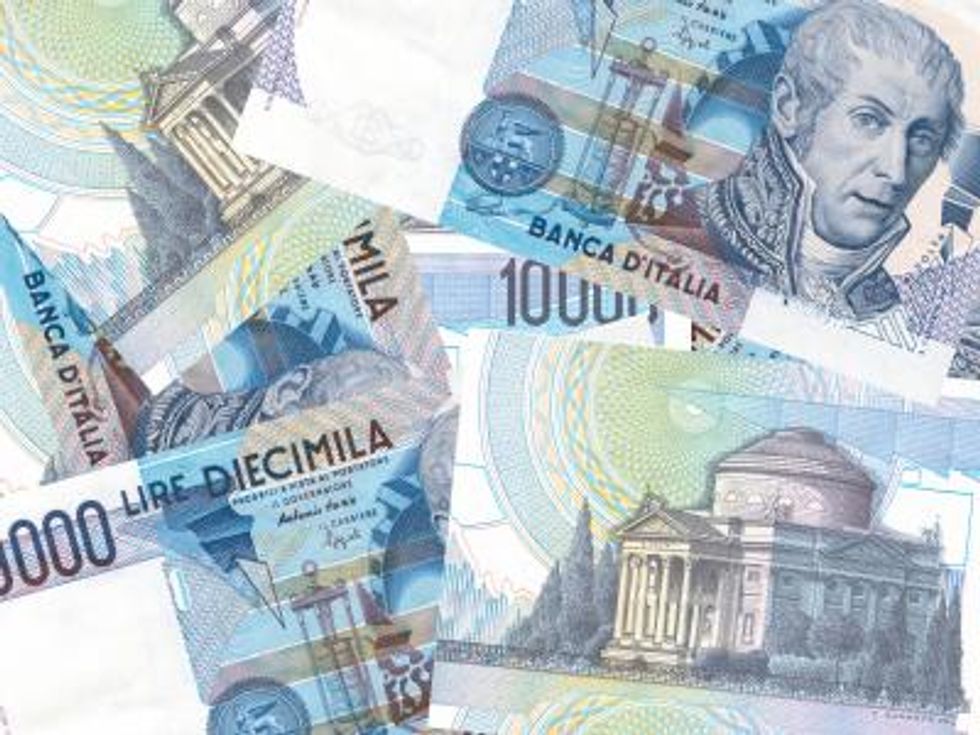Insecurity over Italy’s financial stability make it the latest target of Euro Zone contagion fears and call into question the place the role of gold.
Insecurity over Italy’s financial stability and sinking confidence in the country’s government have made Italy the latest target of Euro Zone contagion fears. These concerns have called into question what role investment in gold will hold as a traditional safe-haven against inflation.
“I think there is great danger in gold being unloaded in specific countries in this problem, and very specifically Italy, which has a huge amount of gold not only as a percentage of the reserves, but the tonnage is one of the largest,” said Jon Nadler, a senior metals analyst at Kitco. “This is the very purpose you keep gold in the basement for the rainy day when you need absolutely to raise cash.”
The European Union is currently in the midst of talks to help determine solutions to Italy’s debt crisis, which is currently at 120 percent of gross domestic product (GDP), the second highest in the Euro Zone after Greece. This has prompted EU discussion encouraging the Italian government to pass an austerity budget to demonstrate it’s initiating reforms.
“I think the Euro has been quite an experiment and a lot of people have thought that maybe it will break up within the first two decades of its existence,” said Nadler. “I’m not sure if that’s the most important part here. I think that the most important part is what happens with the various economies and how, with the austerity measures, translate into social problems, if any. That’s where the danger really lies.”
According to the June 2011 statistics from the World Gold Council, Italy holds 2,451.8 tonnes or 71.9 percent of its total reserves in the gold. In 2007, when Italy’s debt was 107 percent of the GDP, the country sold gold reserves to relieve the financial troubles. Nadler suggests that rather than selling gold reserves, Italy should consider using the metal as collateral while a more long-term solution can be achieved.
“There is nothing easier to reach for, nothing more liquid, nothing easier to pledge to the IMF or European Union than gold,” said Nadler. “If that goes as a further step to allowing them to breathe easier than great, it shows that gold has value in a central bank basement after all. I think it would highlight gold more positively to say it shined when it was more needed.”
This would, of course, require the co-operation of not only the EU, but of all the major players in the global economy who have holdings in the country’s debt.
“Right now I think we need to watch how the EU gets its act together and enlarges the stability fund, and we have to see to what extent China will utter supportive works to Italy as it did to Spain and Portugal in a vote of confidence,” said Nadler. “Obviously they do have some exposure to that type of instrument and I don’t think they’re going to be dumping it, knowing that it does more damage to the remaining holdings.”
The euro slid Monday on concerns about the situation in Italy, trading down 1.5 percent at $1.4050 at the start of US markets. European stock markets have also been falling, and the yellow metal hit a new all-time high in euro terms, though Nadler says that individual investors should not be too excited about the prospect of soaring gold prices as it would mean disaster for many other investments.
“Gold should be a core, long-term, ‘don’t touch,’ insurance asset. There’s no point in trying to ‘make money on gold’ because gold is not a money-making investment,” said Nadler. “People are rooting for $2,000, $3,000 and $5,000 gold, but they clearly have to weight that against what their entire portfolio would look like when gold achieved that magic number. It would be in shambles, so no one should wish for gold to go to the moon because that implies much, much suffering elsewhere.”






